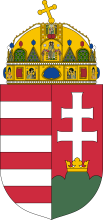Resource information
The purpose of the regulation of urban areas is to achieve rational use of the built environment and infrastructure; regulate local constructions; develop and protect natural and artificial environment; harmonize national, regional, local and private interests. In accordance with national rules on construction, local governments define their own rules. Chapter II provides special legal instruments to aid the implementation of settlement planning: requirements, restrictions, creation of lots, expropriation, right of pre-emption, requisition of the estate or part of it for public road construction, contribution to road-making and to public utilities supply, restoration, planting of trees and other plants, indemnities. Chapter III regulates constructions, determines general requirements for buildings and rules of architectural and technical planning. This Chapter sets out construction licensing procedures as well. The authority of first instance (the local government notary) supervises the works. Offenders of the provisions are liable to penalty. Chapter IV provides for the maintenance and utilization of the built environment, and the protection of its resources (architectural heritage). According to Chapter V, archives of data, necessary for the execution of construction works, are to be kept by building authorities, local authorities, public utility companies, public foundations, chambers and other organs entitled to keep registers by law.
Implemented by: Decree No. 253 of 1997 (XII. 20.) of the Government on national urban development and building requirements. (2013-03-01)
Implemented by: Decree No. 149 of 2012 (XII. 28.) VM of the Ministry of Rural Development concerning the setting out of the territory of competence of district land offices. (2013-04-30)
Implemented by: Decree No. 50 of 2002 (XII. 29.) GKM of the Ministry of Economy and Transport on the construction, utilization, management and closing down of harbours, ferry ports and of other navigation facilities. (2009-09-30)
Implemented by: Decree No. 306 of 2010 (XII. 23.) Korm. of the Government on the protection of the air. (2013-10-25)
Implemented by: Decree No. 373 of 2014 (XII. 31.) Korm. of the Government concerning the duties and territorial competence of land offices and of the Land Survey and Remote Sensing Institute, and providing detailed rules for certain land related procedures. (2015-03-30)
Amended by: Act No. CXXIII of 2007 on expropriation. (2013-06-27)



